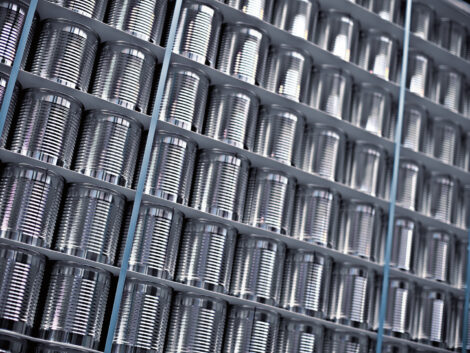European metal cans market to reach $19.95bn by 2026
The European Metal Cans Market was valued at $17.31 billion in 2020 and is expected to reach $19.95 billion by 2026, at a CAGR of 2.33%, according to a report on ResearchAndMarkets.com.
Members of Metal Packaging Europe support the strong measures taken by the national governments and the European Commission to help stop the spread of the COVID-19 pandemic.
They are committed to guaranteeing the supply of metal packaging, abiding by the strictest safety and hygiene rules for food & beverage, hygiene, medical, and other essential goods throughout Europe.
Key Highlights
- BPA-free coatings in the metal can packaging format are ultimately increasing the demand for BPA-free metal cans. The product is gaining prominence due to its distinct features, such as resistance to transportation, hermetically sealed cover, rough handling, and easy recyclability.
- Recyclable properties of metal cans are driving the market as making products from recycled metals uses less energy, reduces carbon emissions, and uses less water than raw materials. Some metals, especially aluminium, are so profitable to recycle that companies pay people and businesses for their used metal. According to Waste Care Corporation, recycled aluminium cans alone generate approximately USD 800 million each year. In Europe, companies are contributing more sustainability for recycling aluminium.
- Moreover, the rise in consumer awareness concerning the application of non-carcinogenic materials in packaging and increased demand for lightweight packing generates high growth prospects for metal cans. As canned foods have a shelf life of up to 5 years longer compared to fresh food. The foods that most commonly come inside a tin can include fruits, vegetables, soups, and meat.
- However, the presence of alternate packaging solutions is restraining the market from growing, as the replacement possibility of polymer-based packaging materials, including polyethylene and polyethylene terephthalate (PET), is witnessing a challenge in the metal can usage.








